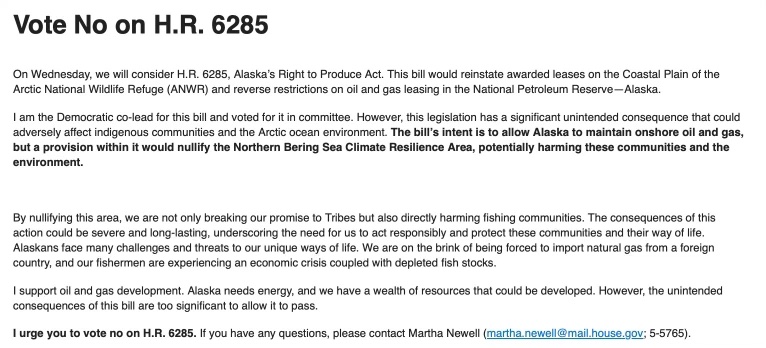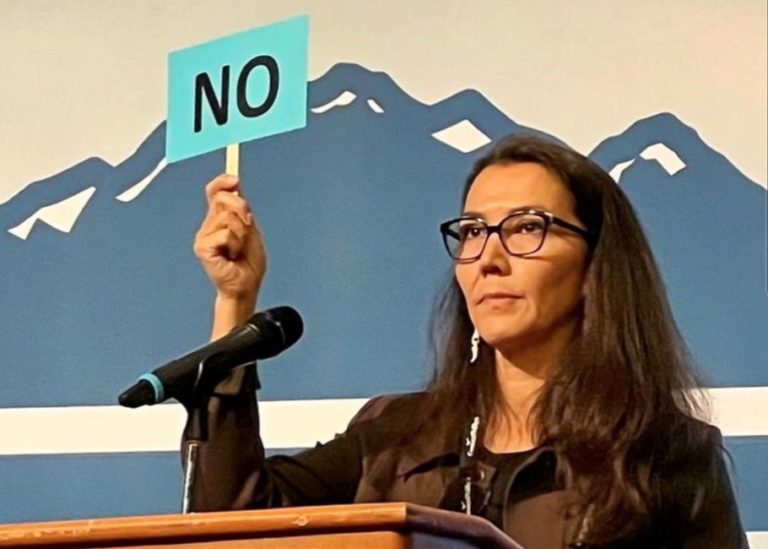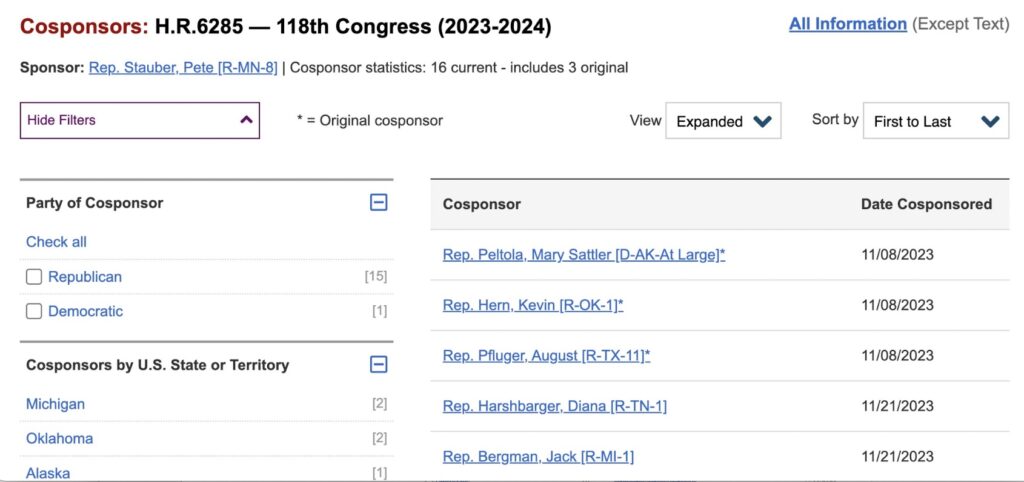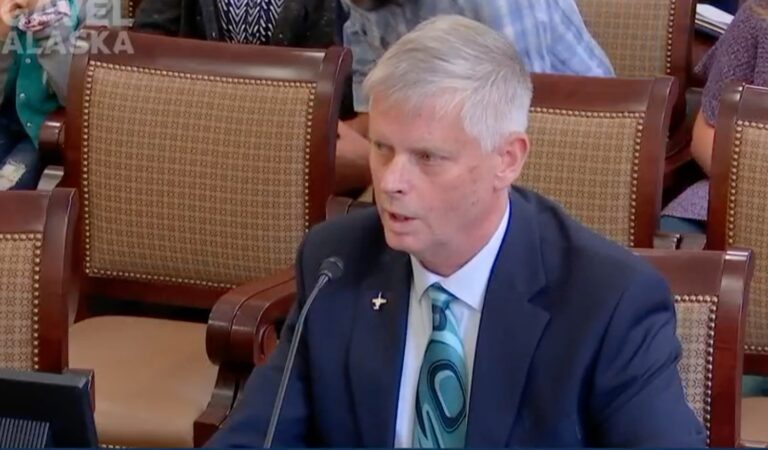Rep. Mary Peltola, who voted “present” on a resolution to restore Alaska’s right to produce oil and gas in congressionally approved areas of Alaska, had written to her colleagues in the House earlier and asked them to vote “no.” All but five other Democrats voted “no” on the Alaska’s Right to Produce Act. Peltola voted “present.”
“I am the Democratic co-lead for this bill and voted for it in committee,” Peltola wrote to her Democrat colleagues. “However, this legislation has a significant unintended consequences that could adversely affect indigenous communities and the Arctic Ocean environment,” she wrote. She pulled her support for the bill because it nullifies the Northern Bering Sea Climate Resilience Area, which was an executive order signed by President Barack Obama in 2016.
Rep. Pete Stauber, a Republican of Minnesota, is the lead co-sponsor of the Alaska’s Right to Produce resolution.
Peltola’s letter to her colleagues asking for a “no” vote follows:

When the House voted on the resolution on Wednesday, Peltola was one of the last congressional members to vote on the bill that unwinds some of the 63 executive orders that President Joe Biden has made against Alaska’s oil and gas economy.
The resolution would stop Biden from shutting down the coastal oil-and-gas area of the Arctic National Wildlife Range and the 13 million acres Biden just took out of production in the National Petroleum Reserve-Alaska.
In September, Peltola had a completely different message than the one she sent to Democrat colleagues this week: “I am deeply frustrated by the reversal of these leases in ANWR. This administration showed that it is capable of listening to Alaskans with the approval of the Willow Project, and it is some of those same Inupiat North Slope communities who are the ones that are most impacted by this decision. I will continue to advocate for them and for Alaska’s ability to explore and develop our natural resources, from the critical minerals we need for our clean energy transition to the domestic oil and gas we need to get us there. We can only get to that transition by listening to the people on the ground. Finally, we can’t keep erasing our progress with every administration. I will continue to advocate for permitting reform that includes predictable timelines from the federal government, which must be a reliable partner in leasing and developing our resources.”
The original story about Peltola’s vote on Alaska’s Right to Produce Act is here:









